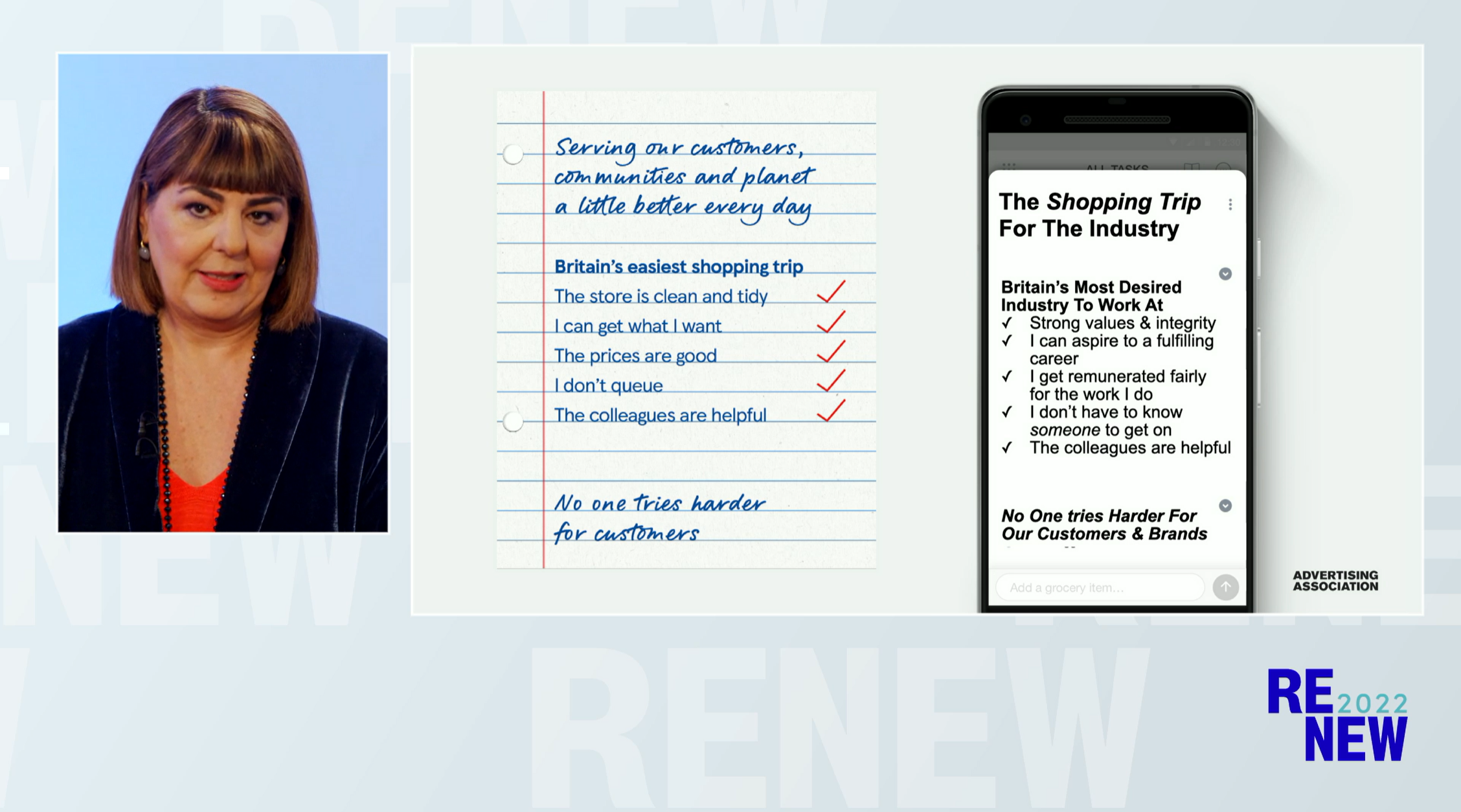
These RENEW 2022 Discussions Are Setting the Agenda for UK Advertising
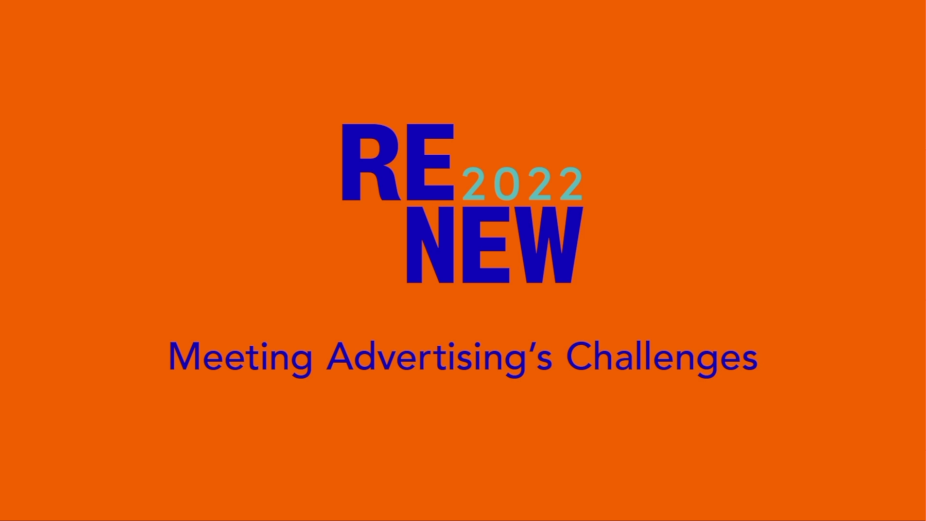
This year’s conference from the Advertising Association, IPA and ISBA - RENEW 2022 - was a holistic online event outlining the key themes relevant to the whole of the UK advertising industry at this moment in history.
Leaders from across the business took to their laptops, ring lights on and bookcases backdrop-ready, to mark where the industry is on a range of subjects right now, and to lay out plans to address the most pressing issues for UK advertising.
Unsurprisingly, many of the same themes reared their heads repeatedly throughout the event. Here, LBB’s Alex Reeves reflects on some of the big themes that will undoubtedly form a key part of the British ad industry conversation in the year ahead.
The economic bounceback of UK advertising
Broadcaster and journalist Nina Hossain prefaced the whole morning’s programme by asserting that “the ad industry business is booming,” referring to the Advertising Association and WARC figures released today that suggest that the UK’s 2021 is set to have been the best ad trade recovery of any international market.
This was echoed in the address from Alessandra Bellini, the new Advertising Association president and chief customer officer and executive sponsor for D&I at the British supermarket Tesco. After introducing herself, telling her story of a sceptical start as an apprentice at J. Walter Thompson through to helping Tesco earn its place as one of the top 10 advertisers in the country, she outlined several of the themes that would be discussed throughout RENEW. While much of that agenda regards serious challenges, her natural optimism shone through when she contextualised it all through the latest ad spend figures, showing 2021 due to close as UK advertising’s strongest year ever: “The UK’s bounceback in 2021 is expected to be the largest across any major international art market, outstripping the global average including US, France and China by more than 12 percentage points. So advertising is well set to help the UK economy recover from the private pandemic.”
It’s traditional at these Advertising Association events to have a relevant politician show their appreciation for the value that the industry contributes to the British economy and the secretary of state for digital, culture, media and sport Nadine Dorries took her chance to cheerlead the buoyancy of UK advertising. “I'm so glad to see that the industry has made a remarkable comeback from Covid,” she said. Ad spend is expected to rise to a new high of £26.7 billion this year, which is brilliant. Advertising is also the backbone of our creative industries, which more and more are the strongest sources of global power.”
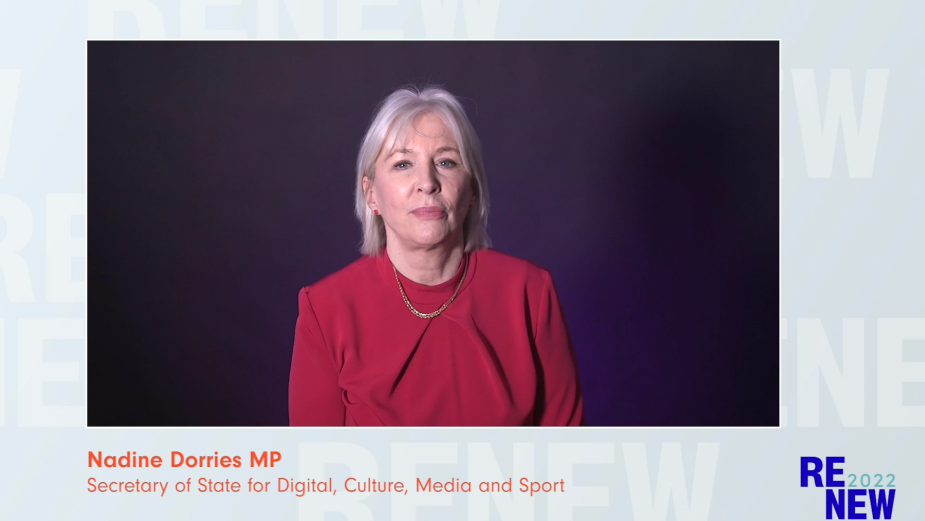
Reestablishing trust
For the past several years, the advertising industry in the UK has been soul searching about how public trust in it has been in decline for so long. And today that theme resurfaced. Alessandra’s address acknowledged this established narrative, made central by previous AA president Keith Weed and noted that progress is being made. “We knew we had to behave our way to be more trusted, not just talk about it,” she said.
There is some positive news, she noted, showing that favourability towards advertising is back on an upward trend in the last two to three years. But compared to other industries, “advertising is at the bottom of that list,” and this improvement is only in line with a general improvement in trust. There is much more to do, she concluded.
But thankfully AA research has shown how advertising can drive that trust. Driving awareness of the Advertising Standards Authority regulations makes a substantial difference, as the AA’s test campaign in Scotland demonstrated last year. This will roll out a UK-wide campaign this year again, she said.
“Put simply, the greater the public's awareness of the ASA, the more likely they are to trust the ads that they see, and the more they will trust advertising overall, which is good for our business.”
Culture secretary Nadine Dorries also focused on regulation in her speech to the event, noting that with up to 70% of people in the UK not trusting what they see online, the regulatory framework of online advertising will come under review by the government this spring as part of its online advertising programme.
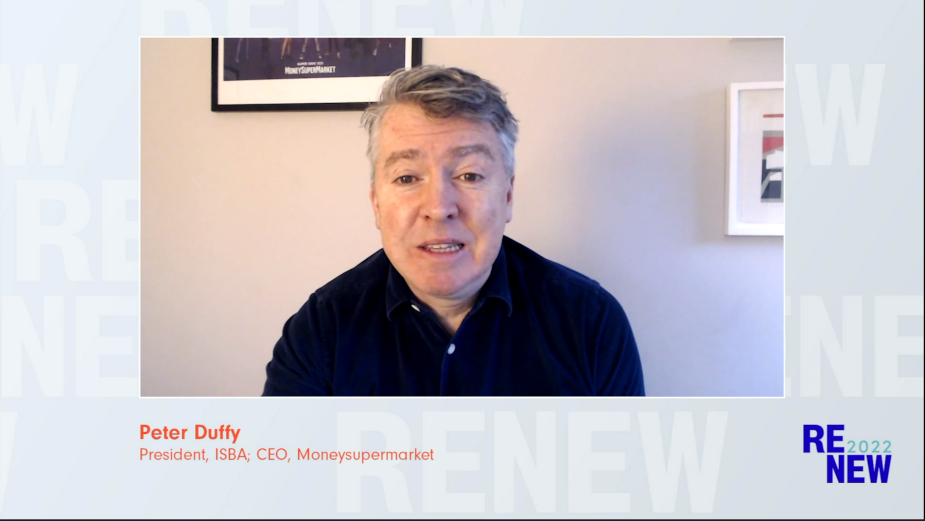
Another discussion that revolved around the restoration of trust in advertising came from Peter Duffy, president of ISBA and CEO of moneysupermarket. His part of the conference focused on why true cross media measurement is an essential requirement for marketers now. Reflecting on the insight that too much advertising, wastage and duplication drives declining trust among consumers, he explained how Origin - ISBA's cross-media measurement project - has been able to make progress because of the vital support it’s had from many areas of the industry. Platforms, agencies and advertisers – have contributed funding to get this ambitious project off the ground. With greater measurement, he argued, some of the practises that mark a decline in trust in advertising will be eliminated.
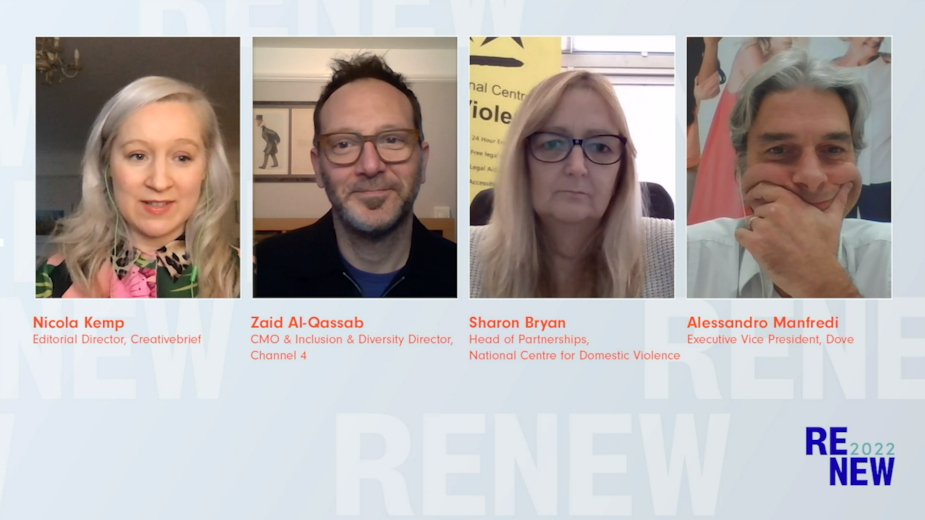
Advertising’s positive role in society
One of the ways Alessandra’s opening address suggested that advertising can rebuild trust is by cementing itself as a force for good in people’s minds. She noted advertising’s role in helping society, such as its role in encouraging uptake of Covid-19 vaccines and boosters - a moment that the culture secretary reflected on in her speech: “When we look it will be a potent symbol of advertising’s power.”
The session titled ‘Advertising’s Super Power’ was a chance to reflect on the world-bettering potential of advertising through three recent campaigns. Chaired by Nicola Kemp, editorial director at Creativebrief, the panel session looked at the socially transformative work of Channel 4 in its ‘Super. Human.’ Paralympic campaign, the National Centre for Domestic Violence’s ‘Abusers Always Work From Home’ campaign, and Dove’s ‘Courage Is Beautiful’ campaign. The panel discussed how each found a creative way to address an issue honestly and effectively.
Ultimately, this is the kind of work that restores the public’s lost trust in advertising. Which is a sentiment that a special film from Gogglebox for the event reinforced. In it, Britain’s most famous TV-watching households gathered to react to a curated ad break of communication including a government announcement around vaccine provision, an expression of deep yearning from Guinness, cuteness from Moonpig and exhilaration from TikTok. It was a reminder that entertaining people while they relax, is also a way that advertising can find a place in the public’s hearts.
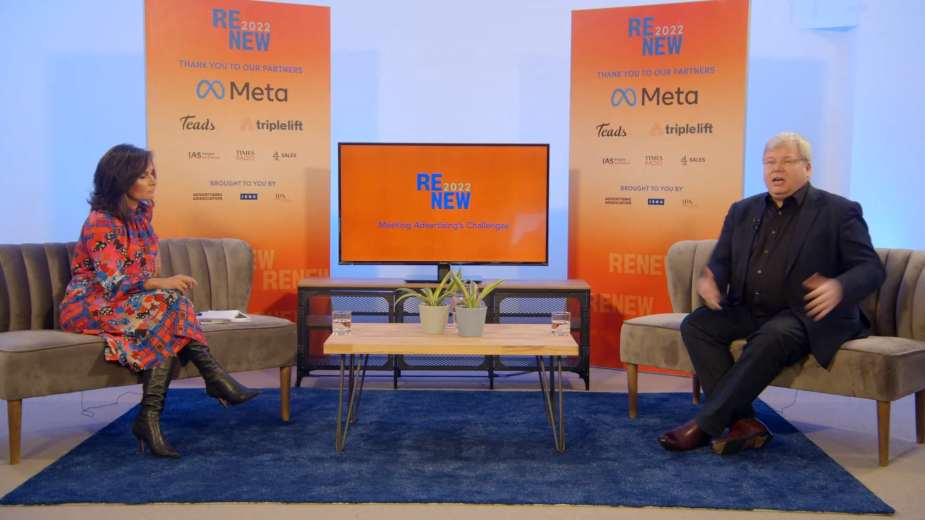
Nina Hossein and Seb Munden
Industry action to address the climate crisis
To ignore the urgency of the climate emergency at an event like RENEW 2022 would be unforgivable. And Alessandra affirmed that action will be “a central part of plans in the coming years” for the AA. There was plenty to talk about on this front, including the schemes that the industry body is involved with: Ad Net Zero and AdGreen, both of which the AA president urged everyone in the industry to take part in.
Seb Munden, EVP and general manager at Unilever UK & Ireland, joined Nina in the studio to discuss the 2022 agenda for Ad Net Zero, which largely revolves around the introduction of the Ad Net Zero Certification, because supporters have asked for an industry-specific, gold standard certification, to be developed.
Seb said: “This new certification will allow agencies, production, media, and advertisers to be accredited for their work in reducing emissions from ad operations and promoting more sustainable products and lifestyles. It will embed best practice, provide accountability, support procurement, and help organisations communicate progress to net zero to stakeholders – to customers, clients, employees, and investors alike. Our aim is to launch the certification in Q3.”
He went on to update the action plan. Outlining five steps for the organisation:
1. Benchmarking industry carbon data
2. Encouraging measurement and reduction through tools like the AdGreen carbon calculator
3. Reducing impact of media, through more tools such as the IPA’s media carbon calculator
4. Promoting sustainability reward categories and educating awards bodies accordingly
5. Ad Net Zero Global Summit alongside COP27 in Egypt
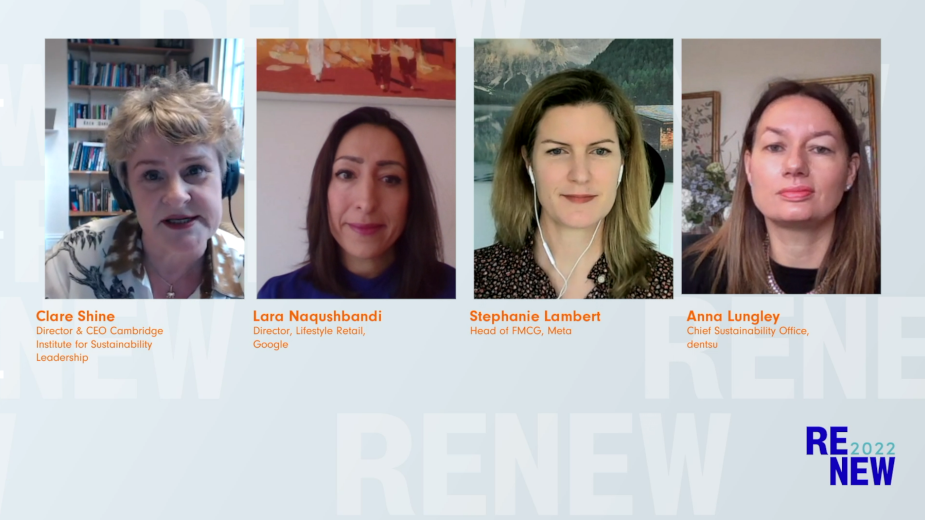
Following this, a panel around the climate challenges of the industry outlined further considerations and tools to decarbonise advertising. Claire Shine, director and CEO, CISL kicked off with a very grounding thought for the industry: “I heard French commentators say recently about the failure of political ecology, how people are torn between utter panic and utter boredom. And here's why the ad sector is uniquely well positioned to think about how the conversation goes forward around this great human project of the 21st century, which is to regenerate a living and livable planet to have equity in life and life chances.”
The three panellists showed examples of how some advertisers can do just that. Anna Lungley, chief sustainability officer at Dentsu discussed the power of brands to raise awareness, change perceptions and shift behaviour. “We cannot ignore the potential we have to drive positive change,” she said, before moving on to tangible steps around measurement becoming less opaque, but how it is key to the whole project of sustainability. “It will raise awareness, it will help us as an industry to understand our role in an ecosystem linked to consumption.”
Strephanie Lambert, head of FMCG for Meta, returned to the refrain of the event: “We know we have a trust challenge,” reminding us that 71% of advertising professionals in the UK are concerned about the impact we are having on the environment. She also touched on how a sector designed to drive consumption needs to find ways to drive success for clients as well as reducing emissions and averting the worst of the ecological crisis. For this we need to go back back to the design stage, she said, where 80% of the environmental impact of a product is determined. We also must educate people in the industry to “create a wave of changemakers” at every level of an organisation, she said.
Google’ Lara Naqusbandi, director of lifestyle retail outlined how a massive company like hers was making progress to becoming net carbon zero by 2030, while at the same time empowering others with tools, such as showing Maps users the most eco-friendly routes, building a tool to help pick the most sustainable flights and hotels and even home appliances.
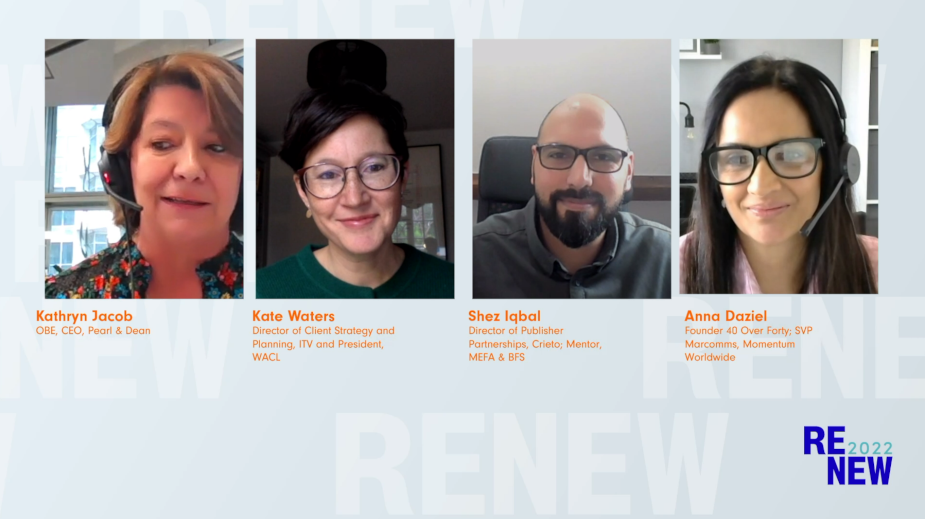
Improving inclusion in advertising
Another topic that would be unacceptable to ignore is the dire lack of diversity among those working in the UK advertising sector. Alessandra’s presidential keynote addressed this by updating us on the AA’s All In initiative, which conducted an industry-wide census of 16,000 in 2021. “Some of these numbers should really make us reflect,” she said.
According to the census, only 1% of UK advertising’s senior leaders are Black.
While senior leaders are made nearly 40% women on average, a female senior leader earns 10% less than their male counterpart.
Those in the industry are three times as likely to be privately educated - much higher than the national average.
Working-class people are underrepresented at 19% versus 39% of the working population.
Only 20% of the industry are aged over 45 versus 44% of the working population.
A quarter of minority ethnic employees said they were likely to leave the industry due to lack of inclusion or feeling discriminated against.
Three in 10 employees suffered from stress, anxiety in the past 12 months.
22% of disabled people have been bullied or undermined
“To truly deliver on its full potential in terms of financial contribution, creativity and career prospects. This industry needs to look beyond stage of life or even state of life when recruiting, retaining and nurturing employees,” said Alessandra.
In a deeper drill-down into what All In has been doing, later in the event, announced improving the experience and representation of women, Asian talent and older talent as the next three actions for the initiative, adding to All In actions covering Black talent, disabled talent and working class talent.
A panel representing each of these three groups discussed the biggest barriers to inclusion and various ways they are being challenged. Kate Waters, director of client strategy and planning at ITV and president of WACL identified a “glass pyramid effect,” at work in the industry, in which the more senior a job level is, the less representation of women is found.
“Overall, the depressing consequence of all of this is that actually women end up being six times more likely to feel discriminated against because of their gender,” she said. “And I think it's no surprise therefore that around 15% - one in six of women - in the industry, are thinking about leaving as a result of that discrimination and as a result of their experience.”
She noted that flexible working for all genders should be a key strategy to address these issues. That doesn’t just mean working from home, but job shares, part time, compressed or flexible hours. She also added that a good first step for companies trying to address their gender imbalance would be taking WACL’s Flexible First Checklist – a self assessment tool to guide you through aspects of flexible working that you need to think about as a business leader.
Providing a perspective from the Asian advertising community, Shez Iqbal reflected on his response to the census. “The results were difficult to digest, but not surprising,” said the mentor at MEFA and director of publisher partnerships at Criteo. For example, 27% of Asian respondents reported they were likely to leave the industry due to a lack of inclusion or experiencing discrimination and the largest group within that felt this were Muslim. “That’s 32% of Muslims who are likely to leave our industry due to their life experiences, and Hindus at 27% and Sikhs at 23% are just behind,” he said.
Shez did have suggestions for positive steps that have been shown to work in addressing this though, including external support to make Asian talent feel more included within an organisation, such as the mentoring he does at MEFA, or simple steps like ensuring there are prominent non-alcoholic options at events.
Anna Dalziel, founder of 40 Over Forty and SVP marcomms at Momentum Worldwide joined to speak about the industry’s ageism issues. The polling data, she noted, showed that only 4% of respondents were aged 55 to 64, compared to 17% of the UK population. And most of those over 55 who took part in the report, were in C-suite roles. “It shows that an alarming 43% of respondents felt age limited their career,” she said. Anna pointed to both conscious and unconscious ageism clearly demonstrated by these figures.
One practical response to this is the All In Shared Experiences policy, where people working within the advertising industry who've got over 15 years experience can be paired with people with under five years experience to learn from each other. “It's not a mentor in scheme, per se,” said Anna. “It's more around reverse learning. and that's important to say because both people are equally learning from each other. And both parties have got knowledge to share.”
Kate emphasised the need for clear action plans, like these now the scale of the industry’s problems have been revealed. “The wake up call for me to the industry is to recognise that these experiences are being lived and felt, you know, day in day out. If we want to deal with the talent crunch that we find ourselves in, we've got so many good people, we have to listen, we have to respond to what they're saying.”
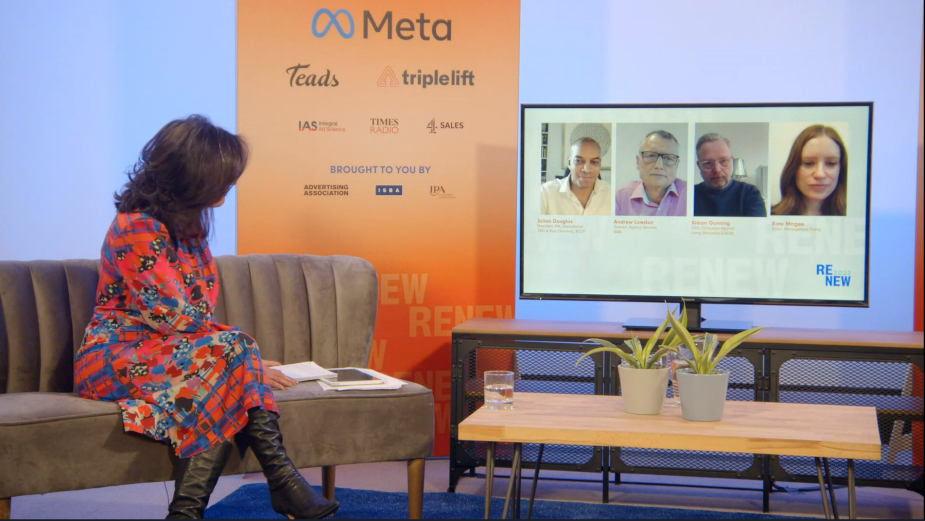
The panel of Julian Douglas, Andrew Lowdon, Simon Gunning and Kate Magee
Ensuring the quality of working life in adland (even during pitches)
In a session titled ‘Building Back a Better Industry’, Julian Douglas president of the IPA and international CEO and VP at VCCP and Andrew Lowdon, director of agency services at ISBA gave the audience an exclusive first look at the Pitch Positive Pledge - a cross-industry plan initiated by the IPA that is aimed at making the pitching process more intentional, accountable and responsible for advertisers and agencies.
According to Julian, previous pitch guides have focused on the ‘how to’ of pitching without due consideration to the human and environmental costs. This initiative, he explains, seeks to address this by also focusing on the ‘why and when’ of pitching. By committing to the cross-industry Pitch Positive Pledge, the IPA and ISBA believe agencies, advertisers and their staff will experience better outcomes including: better mental health, less wastage, fewer costs and better, more effective work.
Joining Julian and Andrew, Kate Magee, editor of Management Today, looked back on a piece she wrote for Campaign about the human cost of the workplace culture the Pledge is looking to challenge.
Speaking to the “hard-nosed agency bosses and clients among you,” Kate emphasised that the culture that is leading to extensive burnout in this industry “will harm your bottom line because at a basic level the quality of the work will suffer.”
This was echoed by Simon Gunning from mental wellness charity CALM, who knows from his own experience in advertising that the pitch process is unquestionably burning people out. “You learn that the person that wins is the person that negates human values as effectively as they possibly can and pummels everybody into a state of submission around them.”
Simple suggestions to actively change this culture, the panel suggested, including avoiding setting deadlines on a Monday, which inevitably assume weekend work, or over Christmas, when people need time to recharge ahead of the new year. “Be thoughtful about the human impact of what you’re asking of people,” said Kate. “Leaders have got a duty of care to proactively manage the workloads of their staff.”
Attracting and retaining talent relies on all of this and more
As sick of the talent crunch and the headlines about ‘the great resignation’ as we may all be, all of the topics discussed at RENEW 2022 are crucially linked to that issue too. “The challenges of attracting people to join our industry and to build their careers here must not be underestimated. We're going to have to compete hard for the best people now, and in the future,” said Alessandra in her opening address. And the discussions that followed helped to flesh out the direction of travel each company, leader and employee in our industry needs to be heading in, through small actions.
Top-down, the AA announced a Talent Taskforce of industry leaders today, to ensure UK advertising meets this challenge. This new Taskforce will review the industry’s strategy to attract and retain the best talent and understand how the advertising workforce can better represent the diversity of its audience. It will be aligned with the work of All In, which has provided the most detailed data yet on the make-up of the industry and the systemic changes needed to retain talent through a more inclusive workplace. But the small actions we all take will add up to the general perception of the industry.
True to her Tesco culture, Alessandra’s keynote ended on a shopping list for the advertising industry that she, the AA and probably most of the industry wanted to see. And if we can get all of these things in our basket in 2022, we’ll be on our way to beating some of the weighty challenges UK advertising faces.
